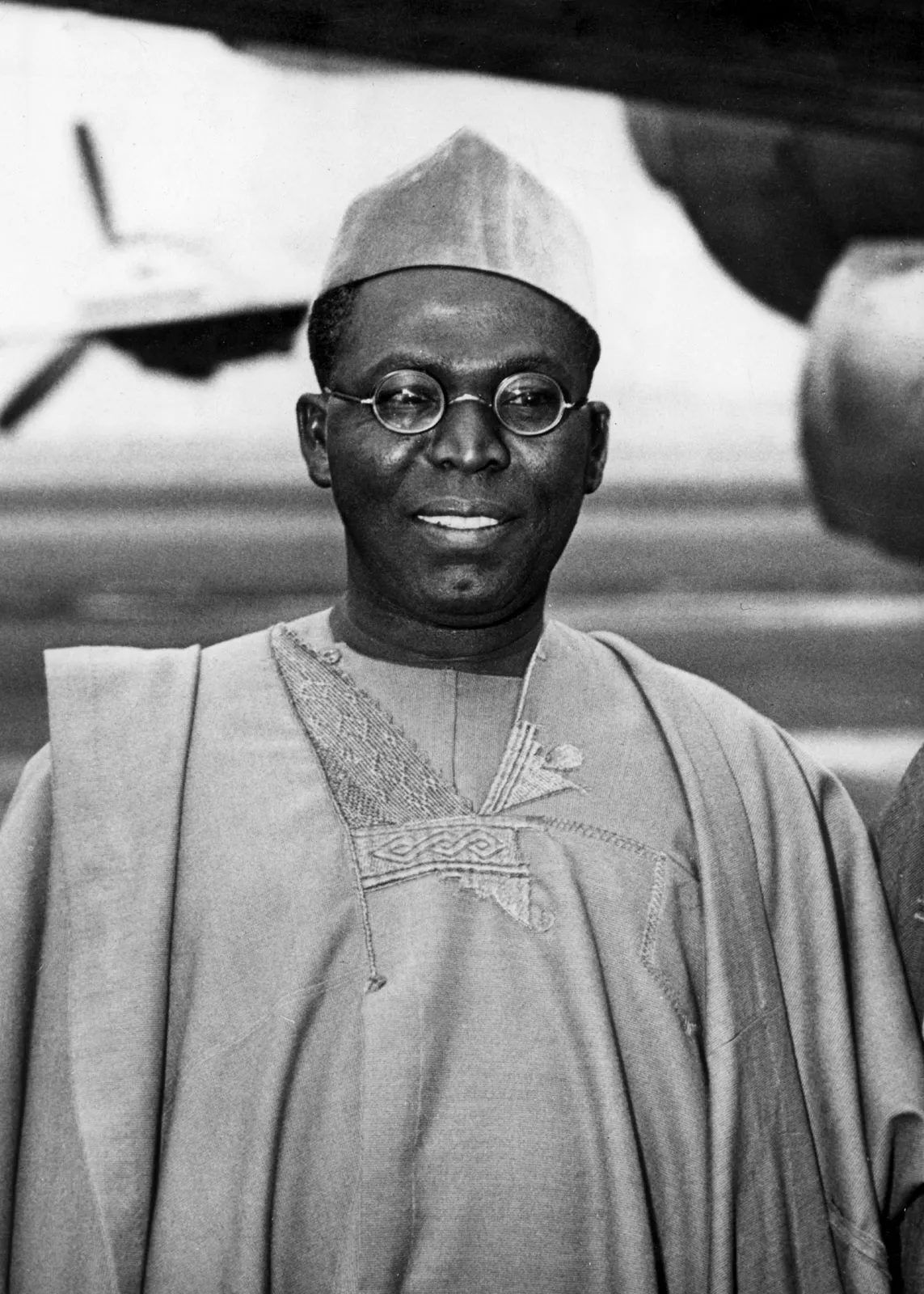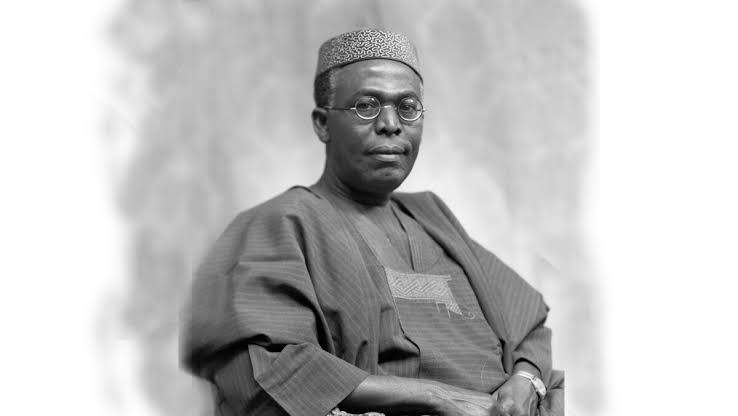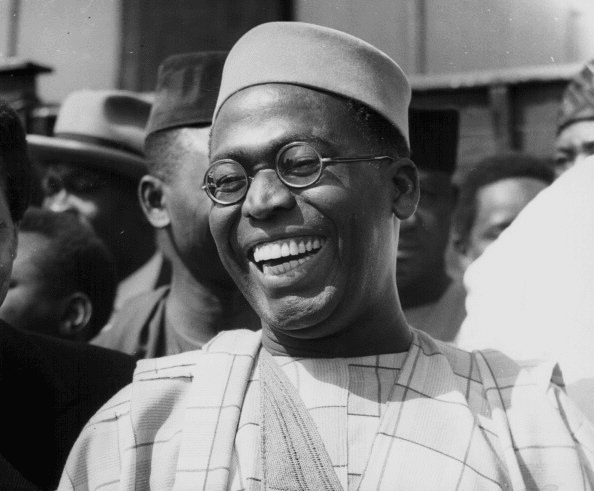Editorial
The Sorrows of Late Obafemi Awolowo

Obafemi Awolowo is a name that resonates deeply within the annals of Nigerian history. Often referred to as one of Nigeria’s founding fathers, his life was marked by extraordinary achievements and profound sorrows. This article delves into the multifaceted life of Obafemi Awolowo, exploring his early years, political journey, significant contributions, and the personal and political sorrows that defined his legacy.
Early Life and Education
Obafemi Awolowo was born on March 6, 1909, in Ikenne, in present-day Ogun State, Nigeria. Coming from a humble background, he was the only son of his parents, which placed a considerable responsibility on his young shoulders. Despite the financial constraints, Awolowo was determined to pursue an education. His academic journey saw him excel in various schools, ultimately leading him to the prestigious University of London where he studied law.
Political Beginnings
Awolowo’s entry into politics was driven by a desire to improve the lives of his people. He founded the Action Group in 1949, a political party that became a significant force in Nigerian politics. The party’s progressive agenda, focusing on education, infrastructure, and social services, resonated with many Nigerians.

Obafemi Awolowo
Achievements in Western Nigeria
One of Awolowo’s most notable achievements was the introduction of free primary education in Western Nigeria. This policy significantly increased literacy rates and provided numerous children with opportunities for a brighter future. Additionally, his administration was responsible for substantial infrastructure development, including roads, hospitals, and schools, which laid the foundation for the region’s modern development.
Struggles and Challenges
Despite his successes, Awolowo faced considerable political opposition. His bold policies and strong stance on various issues earned him both admirers and detractors. In 1962, he was accused of plotting to overthrow the federal government and was subsequently imprisoned. This period was a dark chapter in his life, marked by separation from his family and political marginalization.
Role in Nigerian Independence
Awolowo played a pivotal role in Nigeria’s struggle for independence. He was a vocal advocate for self-governance and worked tirelessly to unite the various ethnic groups within the country. His vision was for a Nigeria where all citizens could enjoy equal rights and opportunities, free from colonial rule.
The Nigerian Civil War
During the Nigerian Civil War (1967-1970), Awolowo’s role was complex and often controversial. As a member of the federal government, he supported measures aimed at preserving Nigeria’s unity. His economic policies, particularly the blockade against Biafra, were seen as crucial in ending the war but also sparked significant controversy due to the humanitarian impact.
Post-War Nigeria
In the post-war era, Awolowo continued to contribute to Nigeria’s political landscape. He was an advocate for federalism and believed that it was the best system to accommodate Nigeria’s diverse population. His efforts were instrumental in the rebuilding process and in laying down principles that would guide future governance.
Later Years and Health Issues
As Awolowo aged, his health began to decline, affecting his political involvement. Despite these challenges, he remained an influential figure in Nigerian politics, offering guidance and sharing his extensive knowledge and experience with younger politicians.
READ ALSO: Segun Awolowo is enthusiastic about plans to stage “Awo” in the UK
Philosophical Contributions
Awolowo was not just a politician; he was also a philosopher and writer. His books and speeches reflect deep thought on governance, democracy, and human rights. His ideals and principles continue to inspire many, emphasizing the importance of education, hard work, and integrity.
Personal Sorrows and Losses
Behind his public persona, Awolowo faced significant personal sorrows. He endured family tragedies, including the loss of his eldest son. These personal losses took a toll on him, and he often reflected on the sorrow and pain that came with his roles and responsibilities.
Legacy and Influence
The legacy of Obafemi Awolowo is evident in many aspects of modern Nigerian society. His contributions to education and infrastructure set a standard for governance. Numerous institutions and landmarks are named in his honor, and his political ideals continue to influence contemporary Nigerian politics.

Obafemi Awolowo
Controversies and Criticisms
Awolowo’s career was not without controversy. His political and ideological conflicts, especially during the Civil War, generated significant debate. Some criticized his methods and policies, while others praised his foresight and commitment to Nigeria’s unity and development.
Reflections on Leadership
Awolowo’s leadership style was characterized by a strong commitment to principles and a clear vision for Nigeria’s future. He was a transformative leader who believed in the power of education and infrastructure as tools for national development. His life offers valuable lessons for future leaders, particularly the importance of integrity, vision, and resilience in the face of challenges.
Conclusion
Obafemi Awolowo’s life was a blend of remarkable achievements and profound sorrows. His contributions to Nigeria’s development, particularly in education and infrastructure, have left an indelible mark on the nation. Despite the personal and political challenges he faced, his legacy as a visionary leader endures, continuing to inspire future generations.
FAQs
Why is Obafemi Awolowo considered a key figure in Nigerian history?
Obafemi Awolowo is considered a key figure due to his significant contributions to Nigeria’s independence, his transformative policies in education and infrastructure, and his enduring influence on Nigerian politics.
What were the main achievements of Obafemi Awolowo?
His main achievements include the introduction of free primary education in Western Nigeria, extensive infrastructure development, and his role in Nigeria’s independence and post-war reconstruction.
How did Obafemi Awolowo handle political opposition?
Awolowo faced political opposition with resilience and strategic planning. Despite imprisonment and accusations, he continued to advocate for his vision and policies, maintaining a steadfast commitment to his principles.
What is the legacy of Obafemi Awolowo in Nigeria today?
Awolowo’s legacy includes his contributions to education, infrastructure, and political thought. His ideals continue to influence modern Nigerian politics, and he is honored through various institutions and landmarks named after him.
How did personal sorrows affect Obafemi Awolowo’s life and career?
Personal sorrows, such as family tragedies, deeply affected Awolowo. These experiences shaped his reflections on leadership and added a personal dimension to his public life, highlighting the human aspects of his journey.
